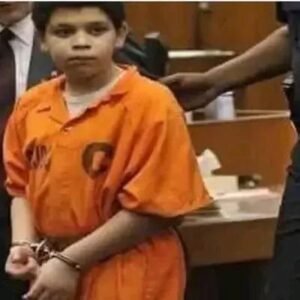When Mrs. Yarrow called me about my late father’s house, I thought I misheard her.
“Your tenants,” she said sharply. “The noise is out of control.”
Tenants? My father’s house was empty. I hadn’t even unlocked the front door since his passing. The grief lived there—untouched, like fragile glass I couldn’t bear to handle.
But apparently, someone had.
I raced to the next town, my stomach twisting tighter with every mile. And when I turned onto Dad’s street, my breath caught.
The house looked… desecrated.
Three cheap sedans were crammed into the driveway. The front door was wide open, music blaring so loud the bass made my chest ache. Beer cans littered the lawn and garden. My father’s porch swing—the one he’d sat on every evening—was gone, replaced with a plastic lawn chair.
I couldn’t even bring myself to step out of the car.
But then I saw it, tucked behind the open garage door: a car I recognized instantly. Nate’s Honda. My husband’s friend. That’s when it all clicked.
My husband. Phil.
Phil had done this. He’d rented out my father’s house behind my back. Turned my grief into cash. Into a playground for his idiot friends.
The rage swelled like a tsunami. For months, Phil had suddenly had extra money, explaining it away as “overtime” and “small bonuses.” I had believed him. Like a fool.
I didn’t cry. I didn’t storm in. I sat there, breathing hard, staring at the ruins of my father’s home. And then a strange calm washed over me.
This wouldn’t be fixed by screaming.
No, Phil needed to feel what I was feeling now: blindsided, trapped, powerless.
I pulled out my phone and called Nate.
“Nate, I know you’re staying there. You shouldn’t be. I could have you evicted tonight.”
He stammered. “Listen—Carla—please…”
I cut him off. “But I’ll make you a deal. Help me teach Phil a lesson, and you get one more month. Rent-free.”
After a pause, Nate whispered, “What do you want me to do?”
The next morning, everything went into motion.
The call came while Phil was scarfing down eggs.
“Dude. The house is on fire.”
Phil nearly dropped his fork. “What?”
“Electrical,” Nate said. “Fire trucks are here. Porch is nearly gone.”
Phil’s pulse shot up. “I’ll be right there.”
He barely muttered an excuse before sprinting out the door.
Driving like a madman, Phil replayed everything in his head. The money, the lies, the careful balancing act—it was all about to collapse. How would he explain this to me? To the insurance company? To anyone?
His phone rang again, mid-panic.
“Hey babe,” I said sweetly. “Just wanted to let you know—I’m heading over to Dad’s place this morning. Got a buyer interested.”
Phil almost veered off the road. “You’re SELLING it?”
“Why not? No sense keeping it empty.”
“But—it’s—family!” he stammered.
“Relax. See you there in twenty.”
The call ended.
He floored it.
But when Phil finally pulled up to the house… nothing. No fire trucks. No smoke. No flames.
Just Nate, sitting on the porch steps, sheepish.
“What the hell is this? You said there was a fire!”
Nate stood up slowly. “Sorry, man. I lied. Carla called me. She knows everything.”
Phil’s face went pale. “She knows?”
“She knows.”
Phil didn’t speak. He simply got back in his car and drove. Not home. Not to me. To a cheap motel.
He knew what waited for him back home: the confrontation, the lecture, the shame. And worst of all, the truth—that he’d betrayed not only his wife but her father’s memory. And for what? A few months of side cash and cheap beers with his buddies?
Phil filed for divorce the next morning.
He requested the house in the divorce settlement. Not to preserve my father’s memory—but to spite me. To twist the knife deeper.
I let him file. I let him rage.
But grief, I’ve learned, has sharp teeth.
He could fight for the house if he wanted. But I knew something he didn’t: that house wasn’t just bricks and wood—it was a living, breathing piece of my father. And I wasn’t done fighting for it.





